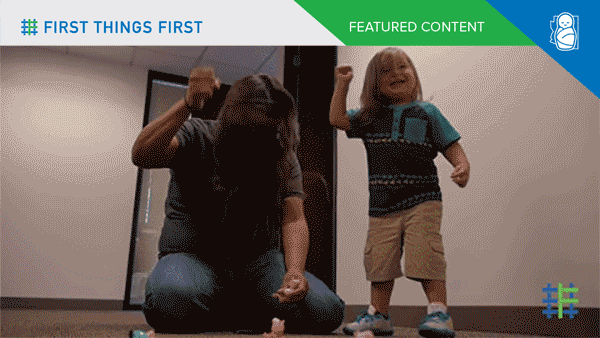Play isn’t just something fun for your preschooler—it’s one of the most powerful ways they learn. When kids play, they’re not just passing the time. They’re solving problems, building relationships, using their imagination and practicing new skills that help them succeed in school and in life.
In fact, the American Academy of Pediatrics says that “play enhances brain structure and function.” It boosts your child’s creativity, curiosity and confidence—all while strengthening their thinking and social-emotional skills.
How Play Helps Preschoolers Grow
Play is how children make sense of the world. It helps them develop important skills that prepare them for kindergarten and beyond.
- Thinking skills. Puzzles, pretend play, and building blocks help kids solve problems and use their imagination.
- Social skills. Playing with other kids teaches sharing, cooperation, turn-taking and understanding other people’s feelings.
- Emotional bonding. Playing with a caring adult builds trust and helps kids feel safe enough to explore and try new things.
“Parents feel strapped for time, but just take two minutes to focus completely on your child. Talk to them as if they’re the most interesting person in the world.” — Kathy Hirsh-Pasek, PhD
How to Support Play at Home
You don’t need fancy toys or a ton of time to help your child learn through play. Just a few small changes to your daily routine can go a long way:
- Create a space to play. Set up a small area with simple toys or everyday items like boxes, pots and stuffed animals. Let your child explore and use their imagination.
- Make time every day. Let your child have unstructured time—especially outdoors—to play freely without a set plan or instructions.
- Let your child lead. Instead of telling them how to play, ask questions or follow their lead. It helps them build confidence and shows them you value their ideas.
By making play a regular part of your child’s day, you’re supporting their learning, development and happiness. And the best part? You’re building a stronger connection with your child, one silly game or make-believe moment at a time.


